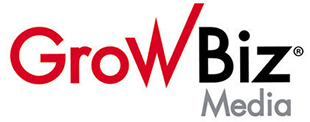As tax season approaches, small and mid-sized businesses (SMBs) face a crucial period that requires careful planning and attention to detail. Whether you’re a seasoned entrepreneur or just starting out, staying mindful of key considerations can help you navigate this time effectively, ensure compliance, and maximize your financial position. Here’s how to ensure that you’re adequately prepared.
Reframe thinking around “tax season”
Perhaps the most important consideration is to stay organized throughout the year. When tax planning is a year-round activity, businesses are far more set up for success. This is why certain firms, including mine, built a subscription tax service that promotes frequent consumption of tax-related services and focused touch points throughout the year. Maintaining meticulous records of financial transactions, understanding tax obligations, and identifying potential deductions is not a once-a-year obligation!
Given the inevitability of taxes, proactive preparation at the beginning of each year is essential to avoid IRS penalties. Budgeting for taxes is fundamental. Unlike traditionally employed individuals–who have taxes withheld from their paycheck–businesses must set aside a portion of monthly revenue to cover tax expenses. So, setting aside appropriate funds, being aware of important tax deadlines, and actively tracking them can prevent costly fines and penalties. Setting reminders for these deadlines ensures that businesses stay compliant with their tax obligations.
Effectively utilizing small business tax deductions can substantially reduce tax liability. These deductions encompass various expenses like home office costs, professional fees, rent, office supplies, utilities, and travel. Accurate record-keeping is crucial, particularly for mixed-use expenses such as business meals, car and auto expenses, and insurance premiums.
Moreover, businesses should be mindful of specific deductions, such as the Section 179 deduction for equipment, which allows for immediate write-offs. Deductions for employee compensation, contractor labor, advertising, and education are also essential, as they lower taxable income and foster business growth.
Embracing the right technology
Harness the power of technology to streamline and enhance your financial management. While accounting fundamentals have remained relatively unchanged over the past five decades, modern technology offers unprecedented opportunities to revolutionize accounting processes–especially for small businesses. Solutions ranging from bookkeeping tools like QuickBooks, financial tools like Expensify and Stripe, operational resources like Salesforce and Slack, and resource planning platforms like NetSuite are great examples of technologies that empower small business owners to gain better insights and scale their financial operations effectively.
Outsource with confidence
It’s fair to say that most business owners are not accounting experts, so it’s crucial to hire the right CPA. A CPA’s expertise in tax season preparation and cash flow management strategies is essential for minimizing liabilities and maintaining the financial health of your business. Transparency in billing, alignment with business needs, and their role in guiding business growth and structure optimization are key factors in a successful financial management relationship.
Look for a CPA who is well-versed in tax laws and has experience aligned with your business’s tax requirements to optimize financial planning and tax efficiency. Additionally, ensure your CPA or accounting service utilizes technology to save time, reduce headaches, and drive organizational efficiency. Your CPA should also understand how your business charges sales tax to customers, ensure compliance with reporting requirements and forms related to payroll and sales taxes, and help differentiate between employees and independent contractors. They should also stay informed about changes in tax laws and assist in creating a plan for estimated tax payments.
If your current CPA isn’t meeting your needs, it may be time to consider switching to a different accounting firm. One aspect often overlooked when searching for a new accountant is the timing of the transition. Choosing the right time can ease the process and minimize disruption. A helpful tip is to consider switching after tax season, as accounting firms typically experience a lull during this period. Following the self-assessment deadline in January or the tax filing deadlines in March and April, accounting firms may have more availability to onboard new clients. This gives businesses a prime opportunity to make the switch and evaluate new accounting options, establishing new partnerships during this lull period.
Even without the resources of a Fortune 500 company, quality support is within reach. Invest in professional technological solutions and expert human guidance. A knowledgeable advisor can assist in navigating complex tax issues, identify savings opportunities, and ensure compliance with tax laws. Investing in the right back-office solution may seem daunting in terms of time and money, but ultimately, it saves resources. In fact, a well-equipped setup not only saves time and money but also fosters business growth by providing valuable insights and expertise. By following these essential tips and proactively preparing for taxes, both you and your business will benefit.
Matt Gardner is the CEO and co-founder of Hiline, a leading financial services firm that delivers scalable accounting, human resources, tax, and payroll services to growth-minded companies, small and midsize businesses, and nonprofits.
Tax season stock image by Thewsila/Shutterstock



